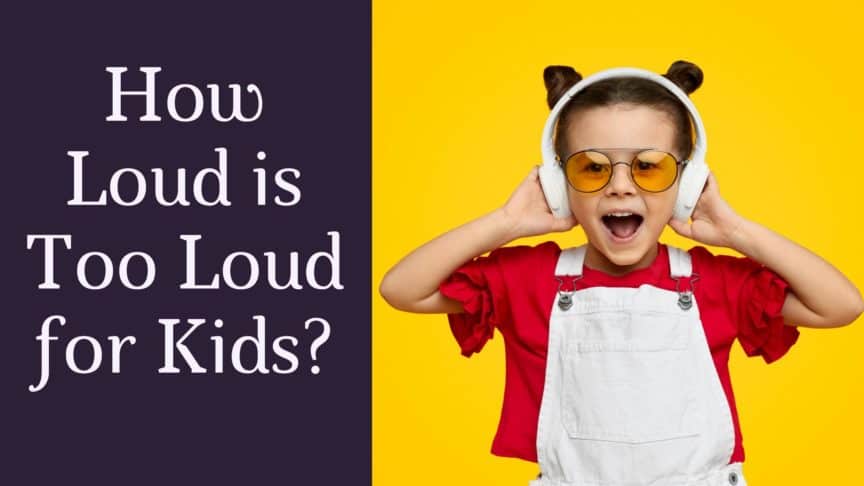- Navigating Concerts When Wearing Hearing Aids - April 28, 2024
- How to Care for Infants With Hearing Loss - April 15, 2024
- Hearing Aid Tips for Runners - April 5, 2024
Noise is a permanent feature in our lives these days. But for kids and teens, this noise could damage their hearing health. Children and teens have a lower threshold for hearing loss, and they are more susceptible to hearing loss than adults. Not only that, but they are often in noisy environments like crowded school hallways, loud band practice, or blasting music through headphones.
So how loud is too loud for your kids, and what can you do about it?
Sources of Dangerously Loud Noise
The CDC estimates that 14.9% of children aged 6 to 19 have hearing loss. This is a major issue every parent should consider. We’re surrounded by noise all the time. Some dangerously loud noises include:
- Heavy city traffic
- Construction sites with heavy equipment
- The garbage disposal truck
- The lawnmower
- A concert or sports event
- Emergency sirens
- fireworks
As a general rule, the louder the sound is, the faster your child may experience hearing loss. If they’re watching fireworks up close, they could experience some hearing loss in just one evening. The daily wear and tear of noisy school hallways could chip away at their hearing health over the course of the entire school year.
Headphones and Earbuds
One of the leading causes of hearing loss in kids is unsafe listening practices. Children and teens often listen to music, watch videos, or play games with earbuds firmly in their ears. They may not realize just how harmful this can be, and they crank up the volume far too high.
For teens who commute to school, this can be an even bigger issue. They may turn up the volume to block out background noise. This might make background noise fade into the background, but it will increase their risk of hearing loss.
The maximum volume on personal listening devices usually tops out at just over 100 decibels. That’s the same volume as a very loud leaf blower. If your kids are listening to music with the volume on high, all that noise is blasting directly into their ears.
Protecting Kids Hearing
As a parent, one of the best things you can do is have a conversation with your kids about noise. Let them know how noise can damage their hearing health and lead to hearing loss. Then, set some ground rules to ensure safe listening. Make sure your kids know they need to keep the volume at 60% or lower, and that they need to take breaks when listening. If your kids know why it’s important, they’re more likely to be proactive in looking after their hearing health.
You can also install parental blockers on their phone to keep the volume at a safe level.
Other tips to protect kids hearing include:
- Downloading a free decibel reader app on your teen’s phone. They can use this to check the volume at school, on the bus, or anywhere they think it might be too loud. This can educate your kids about dangerous noise, and encourage them to wear hearing protection when necessary.
- Getting noise-canceling headphones, so your kids aren’t tempted to turn up the volume on their music.
- Teaching your kids about hearing protection. If you take your kids to a concert or sports event, set a good example by wearing hearing protection. You and your family should wear earplugs if it’s too loud. Do you have children under 5? Younger children have sensitive ears, so make sure you have a pair of children’s earmuffs for your little ones.
- Telling your kids to walk away from any loud sounds. If it seems too loud, they should try to leave the room.
Schedule a Hearing Test
Watch for any signs of hearing loss in your kids. Do you have to raise your voice to be heard? Are they complaining about a ringing sound in their ears? Are you worried your child is being rude and ignoring you? These are all indications that your child may have hearing loss.
Visit us today for a hearing test. If your child or teen has hearing loss, it is important they get treatment as soon as possible. Untreated hearing loss can hold them back in school and affect their learning. Find out if your child needs hearing aids, and find out more about our children’s hearing devices.

